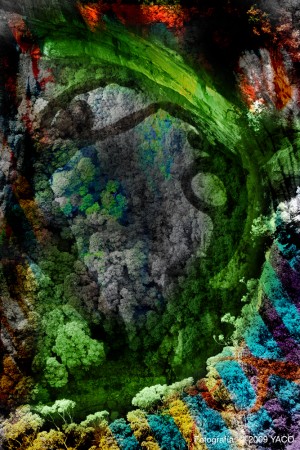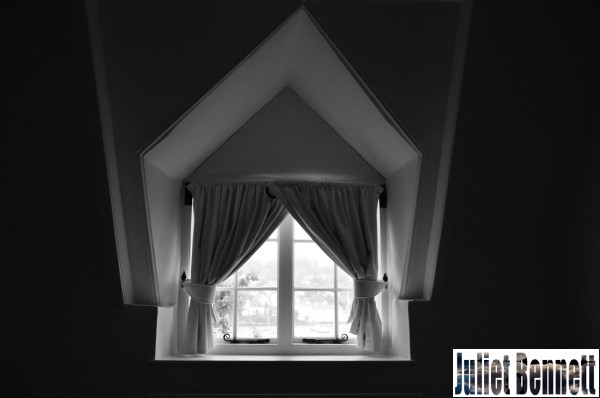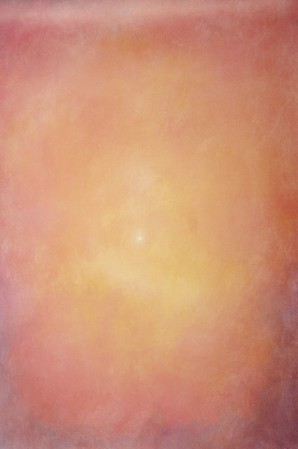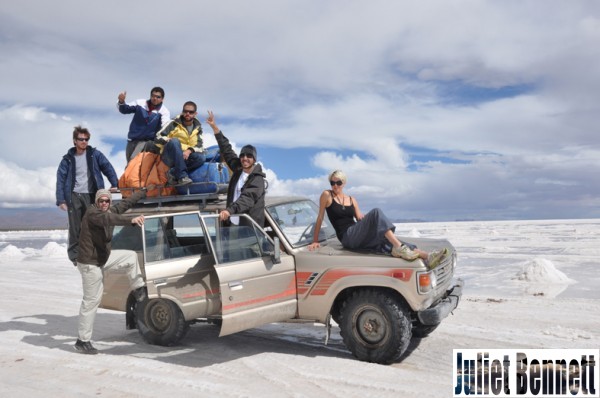Potentialism: a philosophy for life
Discovering your ultimate creative potential: you as your individual conscious, you as your society and you as the universe – playing your role in the creation of a future reality you desire.
Syncretic paradigms:
1. The purpose of life is to discover and fulfill your creative potential in a way that brings the most benefit to others.
This is the purpose of all life
This is “living God’s will”
This is expressing Who You Truly Are and Who You Want To Be
This is discovering your inner being, your intuition, and listening to it
As Shakespeare said, “Above all things, to thyself be true”
2. We are defined not only by our separate identity, but are in fact a collective identity of humanity, of living organisms and of the universe.
In the same way that our body is not separate from the living micro atoms that make it up
In the same way that science describes all matter, us included, as made of the same substance: atoms, which at quantum levels flash in and out of physical existence
In the same way the Buddhists imagine God to be everything
In the same way Christians describe God, as three forms: the father, the son and the Holy Spirit, yet one God; simultaneously omniscient, omnipotent, and omnipresent ie all-knowing, all-powerful and present everywhere.
These ideas do not contradict – they complement. They are each other’s missing link – the way such abstract concepts maybe by physically actualised.
3. Peace is a state of harmony, when the body, mind and spirit are united
Key principles:
4. Listen to “God”/ The Universe / Your Intuition
Thoughts – ideas, images, and words that come into your mind
Intuition – the deep feeling inside that says ‘yes’ or ‘no’
Omens/signs – notice the things in the world around you that you are conscious of at each particular point in time
Words of other people – be it in conversation, a religious, fiction or nonfiction text, or a song on the radio, everything that enters your world is God communicating with you
5. Minimize fear and maximize love
Fear leads to insecurity, hate, and greed
Love leads to security, generosity, and kindness
6. Commit to the process not the result –
Creative potential is infinite and there is no end. An end means a beginning, and the circle of life continues.
Living in the present – it’s a present, a gift from God, pre-sent to you as an accumulation of all your life experiences and thoughts.
7. Realise that all problems can be solved with:
Will – desire to solve the problem
Honesty – about everything
Empathy – understanding where the other is coming from
Creativity – finding solutions
Transform and transcend:
8. Equal care for self and others
When we understand the inseparable connectedness between ourselves and others, we realise our happiness depends on the happiness of everyone else.
Hence our goal: to maximise our collaborative creative potential – expressing our own creativity, and encouraging others to express theirs
9. Consequences of this paradigm:
Selfishness transforms into selflessness – I want the best for me, and since you are me, I want the best for you.
Greed becomes generosity – I want everyone else to have as much as they can, because everyone else is me.
Jealousy and envy becomes pride and happiness for one another – others achievements are achievements of other expressions of myself
The concept of hate disappears – we cannot hate what is you
Self confidence increases, as we feel other’s trying to bring us up, not put us down
We truly put into action Jesus teaching to “do unto others as you’d have them do to yourself” (check wording + add equivilant teaching from other religions)
10. Self-reflection and self-transcendence
Breaking down defensiveness, building up confidence to critically evaluate one’s self and acknowledge our wrongs or harms we have done to others – allow us to repent and allow them to forgive
Rid yourself of your own grievances and any desire for vengeance for injuries inflicted by others – through empathy with the Other, we learn to forgive and move on
11. Create your own happiness
Make the decision to be happy – it is the biggest decision you will ever make in your life.
Begin with gratefulness, for what you have, even if it is little
Study the past, analyse different perspectives, take lessons from it and use it to expand your creative potential
Don’t cultivate feelings of regrets, everything has happened for a reason, figure out what that reason is, and how the past can help you in your quest for creative potential.
Bad decisions do not exist, that is judgement you make yet instead you can realise that this results may have led you to challenging times, from which you can now learn. These consequences were a small sacrifice, part of the process of discovering your creative potential.
Do not cultivate feelings of guilt. Guilt is of no benefit for you nor for those around you. Forgive yourself and let it go. Learn from the past, but keep your mind in the present, and an eye on the future
12. Cultivating wisdom
Facts are never static, but are the closest statement of the truth, at a particular point in time. If the data changes, facts also change. We must remain open to new data, ready to evaluate it in order to constantly progress towards a more truthful truth.
Taoists belief “what is impossible today may become possible tomorrow, and what is good today may become evil tomorrow; what seems right from one point of view may from another view seem completely wrong.”
13. The pleasure of extremes, and joys of balance
Life and death, hot and cold, love and hate, good and bad – you can’t have one without the other. This is the dualistic nature of life, and I wouldn’t have it any other way. I’d prefer a passionate love, even if it sometimes slips over to hate, than a mediocre love all the time. The extremes are much more fun. Ups and downs are what make life interesting. It’s the challenges that bring the most satisfaction.
Happiness when pushed to the extreme becomes sickly and dull. Beauty overdone becomes ugly. Even too much chocolate makes feel sick…
14. Rid your life of fear
In the same way that millions of skin cells die every day, and yet our human body continues to live
Our consciousness is already connected, and will continue to be connected even when the separateness of our present memory no longer functions, our consciousness will continue to live on through others – that are ourselves
15. Cultivate faith
Faith is about cultivating a state in your heart and mind whereby you give yourself to God* – not about conforming to a set of “beliefs”
Don’t worry, don’t struggle, allow the will of God/ the Universe to be done
Is not about belief in hocus pocus or confession to any kind of autocratic dogma – faith is about a state of heart and mind
Even things that seem to have no reason whatsoever, in time, you will see how it expanded your, or another’s, creative potential
16. Get in-touch with your creative side
We ALL have one, you just have to give it a go
Try everything, don’t be afraid of anything
Know that time and effort are what give results; if you are prepared to invest yourself in something, you can do whatever you want to do.
In order to maximise happiness in life:
17. Right investment
(a) Of your time
Spend it with people who motivate and encourage
In an occupation that allows you to learn and express your creativity
Feelings of daily happiness are essential to stimulate your creative potential
Expanding other’s creative potential, and the creative potential of other forms of life, including the planet
In ways that will provide maximum benefit to the most people
Spend some time in silence, connecting to your conscious and giving it room to create; meditation, walking, driving, prayer
(b) Of your money
Money should be a reflection of the amount of time and effort that you have expended, and can henceforth use in exchange for others’ time and effort.
In your purchases, buying what is good for yourself and good for others
In your financial investments, in businesses that are helping life move toward it’s creative potential
18. Not no conflict but no violence
No circumstance ever substantiates violence
The ideology of Potentialism must never be fought for – this is against the nature of creative potential. Fighting for an ideology destroys creativity, which may be trying to morph into new forms, in which case, this is it’s achievement of creative potential.
Fighting against nature is fighting against the will of God, that is, fighting against the deepest drive of each of us,
Potentialism seeks organic expansion through love, it is never forced or forged, but is the result of a synergy between selfish and selfless – working together for the good of all-life itself, all which is God.
19. The power of the mind
The universe operates through spontaneous creativity, and through patterned phenomena – your role may be to contribute to either
Thoughts are powerful in ways we don’t yet understand. We do know they are measurable on wavelengths, like radio waves, but have not tapped in to harness them yet. Experiments have shown the incredible impact of positive thoughts on plants, water molecules, and even the nature of atoms.
Harness this power. Dream, make goals, pray, meditate, make them reality.
20. The power for world peace lies with you
Each of us have, together, the power to change the world
All it takes is a vision: what do we want the world to look like?
And then in each of us the will to reconnect with our life’s purpose and play out our roles in this transformation.
It begins with finding the peace within ourselves.
Anything is possible!
Some notes on terminology and origins:
What is a Creativist?
A Creativist is someone who sees Creativity as the expression of the Divine Creator present in all life and the universe. Creativity is humanity’s source of greatest pleasure, satisfaction, and act of generosity. Creativity expresses your individual consciousness and shares it with others, simultaneously expressing the collective conscious and providing avenues for your individual conscious to learn.
Creativism or Creationism?
Just to clarify – this is NOT to be confused with “Creationism” which refers to a belief in a 6-day creation 6000 years ago. NO. Creativism is about CREATIVITY and the role WE play in the ONGOING CREATION PROCESS of our universe. These ideas are a work-in-progress (that I wrote one year ago and haven’t touched since) hence I thought I’d put out there. Everything in life always seems to be a work-in-progress, so carpe diem…
Expressions of Creativity:
Creativity is not only for those left-brainers; creativity is for everyone. Analyse the sources of pleasure in your life, you will probably find they involve some form of creation that you contribute to. For example:
– art of any kind: photography, draw, write,
– in numbers, in science, in business: look for creative solutions to problems
– food and wine: play with life’s little pleasures
– breathe: take pleasure in every breath, it feeds your cells and contributes to the production of new ones
– look for improvement: in every aspect of your life, each little bit of creative expression adds value
– in interior and exterior of your house, fashion, self expression
– make babies: the most amazing creation a human can make
Did I make this up?
I think you’ll find there’s nothing really new about what you’re read above … we are all so connected that I have this feeling when you finish reading this, you’ll feel like I’ve just typed out a transcript of your own mind. I may be wrong – all of the following may make no sense to anyone other than myself…
The writings above are a summation of my beliefs around July 2008. They outpoured form my brain as a stream of consciousness and are most likely inspired by all the books I’ve read and all the experiences I’ve incurred, so I don’t take credit for any of it. That’s how ideas grow and form – a culmination of the past, remoulded/stated a little differently, into something that can be used for the future.
I’m not sure how the term “creativism” first came into my head, probably on one of my long walks, where all my other ideas come from, and when I googled it I discovered it was a term being used by a few people to describe a similar concept of what I wanted to use it to describe.
There is even a definition in the Urban Dictionary: Creativism = ‘The theory or practice of creation as a way to live and understand life’ and a Creativist = ‘someone who is attuned creatively to their surroundings; a person who understands and expresses their life through creative works or motifs.’
I came across the term “Potentialist” in an article inside a flight magazine. See: https://julietbennett.com/2010/04/26/potentialism/
I couldn’t find a definition of “potentialist” so I made up my own: A “potentialist” is an alchemist of potential – someone who strives to achieve their mental, physical and spiritual potential.
The end and the beginning
Anyway if you have got through this essay then I have to say I’m extremely impressed. Six pages worth of babble… anyway I would really really really love to know what you think. And do you like the title Creativism or Potentialism, or can you think of something better???
Thank you!!!
Juliet xxx
 So I (finally) finished reading Shantaram!!! It is a very long book, but well worth the time.
So I (finally) finished reading Shantaram!!! It is a very long book, but well worth the time. Ok so I’m laying in the water enjoying an early morning swim at a nearby harbour-pool when all these thoughts stream into my mind. A sign that my mind has had enough vacation? I’m not sure.. Narratives of Peace is a topic I’m looking at doing a research project on in the second half of this year…
Ok so I’m laying in the water enjoying an early morning swim at a nearby harbour-pool when all these thoughts stream into my mind. A sign that my mind has had enough vacation? I’m not sure.. Narratives of Peace is a topic I’m looking at doing a research project on in the second half of this year…
 Something sure to come up a lot on this blog is the question of meaning – why the f**k are we here on this planet??? It is something I contemplate regularly.
Something sure to come up a lot on this blog is the question of meaning – why the f**k are we here on this planet??? It is something I contemplate regularly.